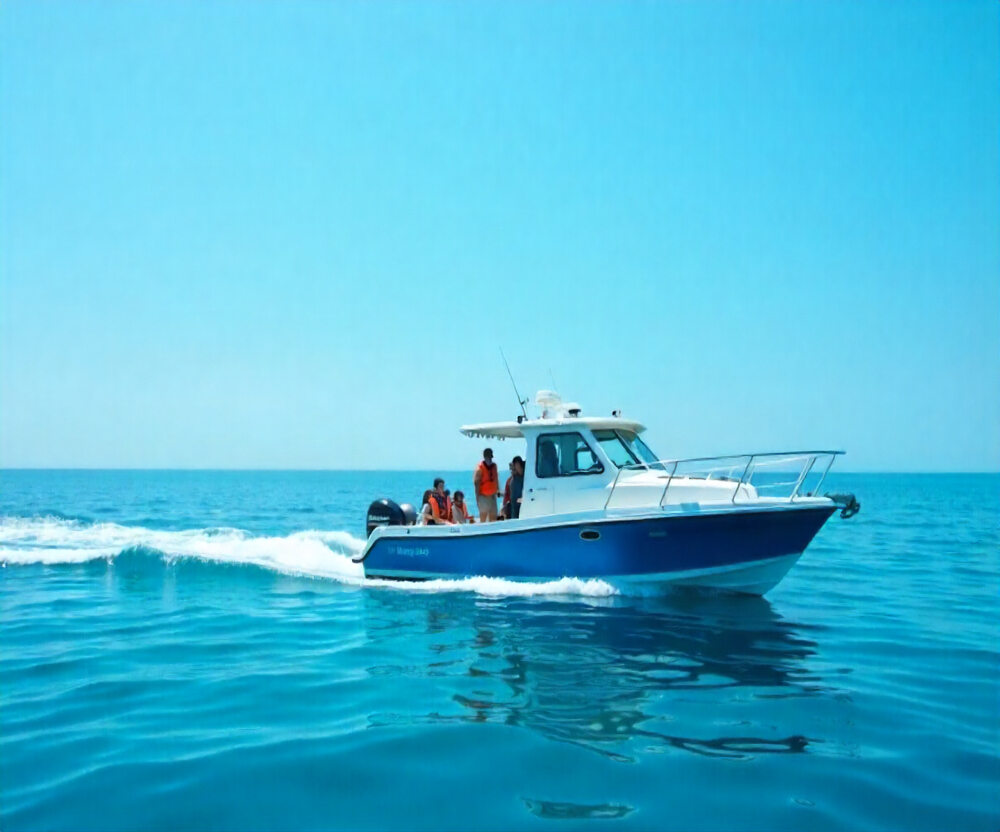≡-Mumbai Is Set To Start Advanced Electric Water Taxi Service This September Between Gateway Of India And Jawaharlal Nehru Port with Luxury And Green Mobility – Viral of Today
<> Viral of Today <>
Home » India Travel News » Mumbai Is Set To Start Advanced Electric Water Taxi Service This September Between Gateway Of India And Jawaharlal Nehru Port with Luxury And Green Mobility Published on
August 29, 2025Mumbai will officially introduce its state-of-the-art electric water-taxi network this September, delivering a sleek, low-emission travel solution between the renowned Gateway of India and Jawaharlal Nehru Port. The initiative shortens journey duration substantially, channeling the city’s waterfront into a rapid transit corridor, while electric craft eliminate the carbon footprint of fossil-fueled ferries. Passengers—whether daily commuters or international visitors—benefit from a contemporary, comfort-driven environment, complete with onboard connectivity and digital ticketing, all powered by clean energy. By merging swift connectivity with upscale, responsible design, the route marks a pivotal advancement in Mumbai’s maritime transportation, erecting a model for future urban waterfront infrastructure.Mumbai, India’s bustling financial capital, is preparing to make a significant leap toward modern, sustainable transport as it unveils its advanced electric water taxi service this September. This innovative service is designed to offer quick, environmentally conscious, and premium travel between two of Mumbai’s most important coastal landmarks: the famous Gateway of India and the vibrant Jawaharlal Nehru Port (JNPA). This cutting-edge service is not only designed to enhance urban mobility but also aligns with the city’s broader goals of reducing pollution and promoting green transportation solutions.Transforming Mumbai’s Maritime ConnectivityHistorically, water transportation in Mumbai has been limited to traditional boats, which are often slow and cumbersome, taking over an hour to cover essential routes. These conventional ferries, while affordable, are increasingly seen as outdated in a city striving for modernization. The introduction of the electric water taxi service will transform Mumbai’s maritime transport, providing quicker and more efficient options for both commuters and visitors.The electric water taxis will be able to complete the trip between Gateway of India and Jawaharlal Nehru Port in under 40 minutes, a significant reduction from the current travel time. This advancement in speed is crucial for both business travelers and tourists who seek quick access to key destinations without being held up by Mumbai’s notorious traffic.Luxury Meets SustainabilityThis new service is set to deliver much more than just enhanced speed. Passengers will enjoy an elevated experience with luxury and comfort as a focal point. The electric vessels will come equipped with modern amenities, ensuring a smooth and pleasant ride for all. Expect comfortable seating, air-conditioned cabins, and panoramic windows that provide breathtaking views of the Arabian Sea and the city’s skyline.In addition to the luxurious features, the water taxis are designed to operate with a minimal environmental footprint. The boats will run on electric power, supported by solar energy, reducing their carbon emissions to nearly zero. This move towards electric and hybrid power sources is a critical step in the city’s ongoing effort to combat air pollution and promote sustainable urban transport options.A Green and Efficient AlternativeIn line with global efforts to reduce carbon emissions, Mumbai’s new water taxi service is a step forward in promoting green mobility. The electric boats will significantly cut down on pollution when compared to traditional diesel-powered vessels. Furthermore, the hybrid model—combining electric battery power with solar energy—will ensure that the service remains environmentally friendly throughout the day, even during peak hours.By shifting from conventional fuel-driven boats to electric vessels, the city is embracing cleaner and more energy-efficient alternatives. The hybrid system also includes a diesel backup for emergencies, ensuring that passengers experience uninterrupted service, even if the electric charge runs low.The introduction of these eco-friendly boats is part of a larger effort by the Indian government to promote sustainable transportation in urban areas. As one of the most densely populated cities in the world, Mumbai faces immense challenges related to air quality, congestion, and the demand for efficient public transport. By embracing electric water taxis, the city is addressing multiple challenges at once—improving public transport efficiency, reducing traffic congestion, and contributing to cleaner air.A Boost to Tourism and Local EconomyThe electric water taxis will not only benefit commuters but also provide a major boost to Mumbai’s tourism industry. With faster and more efficient access to iconic landmarks like the Gateway of India, tourists will be able to explore more of what the city has to offer in less time. The service offers a unique way to see Mumbai’s coastline, providing stunning views of the city from the water.Moreover, the introduction of the electric water taxi service is expected to generate employment opportunities within the maritime sector. Crew members, maintenance staff, and other personnel will be needed to operate and manage the new service. Additionally, local businesses near key docking areas, such as cafes and retail shops, stand to benefit from increased foot traffic as tourists and commuters use the service.The environmentally conscious nature of the service is also likely to attract international travelers who are keen on sustainable tourism. By promoting eco-friendly transport, Mumbai is positioning itself as a modern destination for the eco-conscious traveler.Smart Integration with Mumbai’s Transportation NetworkMumbai’s electric water taxis will also integrate seamlessly with the city’s broader transportation network. This integration aims to make commuting more convenient for passengers by providing easy connections with other modes of public transport such as buses, metros, and suburban trains. This multi-modal connectivity is essential in a city where traffic congestion can severely affect daily commutes.Passengers using the water taxi service can easily transfer to other transport options, creating a hassle-free, interconnected journey across the city. This integration will further encourage the use of public transport and reduce reliance on private vehicles, which are a major contributor to Mumbai’s pollution and traffic woes.Future Prospects and Expansion PlansAlthough the initial rollout will involve a limited fleet of electric boats, future expansion is already on the cards. The success of the initial routes between Gateway of India and Jawaharlal Nehru Port could lead to further expansion of the service, with additional routes and more boats introduced over time. Future plans may also include extending the electric water taxi network to other areas of Mumbai’s waterfront, further enhancing the city’s maritime transport options.The introduction of electric water taxis is just one example of how Mumbai is embracing innovative solutions for sustainable urban mobility. As technology continues to evolve, the city will likely explore even more eco-friendly transport options, including autonomous electric boats and improved battery technologies.Mumbai is poised to introduce a state-of-the-art electric water taxi system this September, operating direct ferry routes from Gateway of India to Jawaharlal Nehru Port. Positioned as an expedited, low-emission, and decidedly upscale commuting option, the system merges contemporary comfort with an unswerving commitment to green mobility, thereby furnishing a resource-efficient substitute for the conventional transport network and amplifying both speed and ecological performance for residents and visitors alike.The electric water taxi undertaking is set to redefine the capital’s maritime transport framework with notable immediacy. By truncating travel durations, mitigating the carbon footprint, and presenting a high-standard onboard experience, the initiative aligns luxury with ecological integrity, thereby embedding sustainable mobility at the locus of urban expansion. By strategically harnessing electric propulsion, Mumbai is architecting a future transport architecture that is as technologically progressive as it is environmentally accountable, signalling a decisive shift toward carbon-aware urban commuting.Scheduled to commence formal operations this September, the service not only promises unparalleled convenience to users but also advances the city toward its broader ecological targets.
This information will surprise you!
See also
- Read until the end to discover everything.
- Important information you need to know.
- Interesting facts and helpful tips.
Conclusion
Did you enjoy the news? Keep following us daily!













